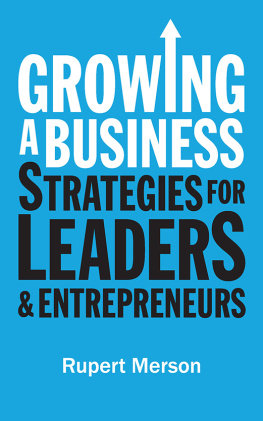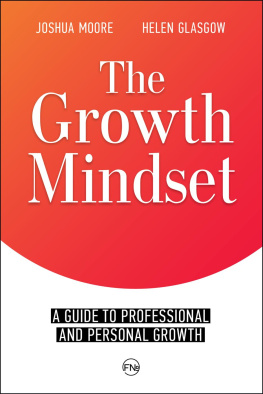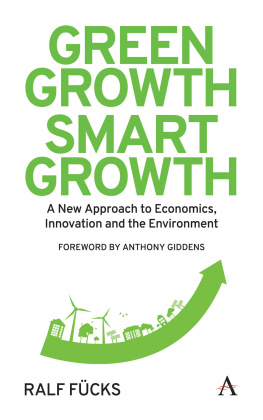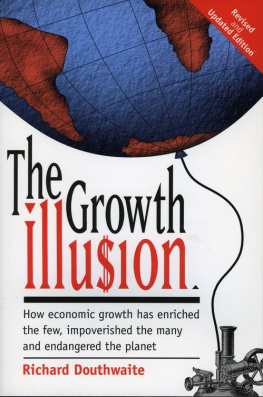Merson - Growing a Business
Here you can read online Merson - Growing a Business full text of the book (entire story) in english for free. Download pdf and epub, get meaning, cover and reviews about this ebook. year: 2016, publisher: Profile Books Ltd;Public Affairs, genre: Business. Description of the work, (preface) as well as reviews are available. Best literature library LitArk.com created for fans of good reading and offers a wide selection of genres:
Romance novel
Science fiction
Adventure
Detective
Science
History
Home and family
Prose
Art
Politics
Computer
Non-fiction
Religion
Business
Children
Humor
Choose a favorite category and find really read worthwhile books. Enjoy immersion in the world of imagination, feel the emotions of the characters or learn something new for yourself, make an fascinating discovery.
Growing a Business: summary, description and annotation
We offer to read an annotation, description, summary or preface (depends on what the author of the book "Growing a Business" wrote himself). If you haven't found the necessary information about the book — write in the comments, we will try to find it.
Merson: author's other books
Who wrote Growing a Business? Find out the surname, the name of the author of the book and a list of all author's works by series.
Growing a Business — read online for free the complete book (whole text) full work
Below is the text of the book, divided by pages. System saving the place of the last page read, allows you to conveniently read the book "Growing a Business" online for free, without having to search again every time where you left off. Put a bookmark, and you can go to the page where you finished reading at any time.
Font size:
Interval:
Bookmark:
GROWING A BUSINESS
RUPERT MERSON is adjunct associate professor of strategy and entrepreneurship at London Business School, where he teaches a range of courses around entrepreneurship and business growth. In 2015 he won prizes as best teacher at both LBS and INSEAD. Formerly a partner at BDO, he now runs his own consultancy advising firms on how to manage growth. He is also the author of Rules Are Not Enough.
GROWING A BUSINESS
STRATEGIES FOR LEADERS & ENTREPRENEURS
Rupert Merson


PUBLICAFFAIRS
New York
THE ECONOMIST IN ASSOCIATION WITH PROFILE BOOKS LTD
Copyright Rupert Merson, 2016
This is an extensively revised and updated version of The Economist Guide to Managing Growth by Rupert Merson, first published by Profile Books in 2011.
Published in 2016 in the United States by PublicAffairs, a Member of the Perseus BooksGroup
All rights reserved.
Printed in the United States of America.
No part of this book may be reproduced, stored in or introduced into a retrieval system, or transmitted, in any form or by any means (electronic, mechanical, photocopying, recording or otherwise), without the prior written permission of both the copyright owner and the publisher of this book, except in the case of brief quotations embodied in critical articles and reviews. For information, address PublicAffairs, 250 West 57th Street, 15th Floor, New York, NY 10107.
The greatest care has been taken in compiling this book. However, no responsibility canbe accepted by the publishers or compilers for the accuracy of the information presented.
Where opinion is expressed it is that of the author and does not necessarily coincide with the editorial views of The Economist Newspaper.
While every effort has been made to contact copyright-holders of material produced or cited in this book, in the case of those it has not been possible to contact successfully, the author and publishers will be glad to make amendments in further editions.
PublicAffairs books are available at special discounts for bulk purchases in the U.S. by corporations, institutions, and other organizations. For more information, please contact the Special Markets Department at the Perseus Books Group, 2300 Chestnut Street, Suite 200, Philadelphia, PA 19103, call (800) 8104145, ext. 5000, or e-mail
Library of Congress Control Number: 2015959978
ISBN 9781-610396790 (EB)
Figures and tables
Figures
Tables
Introduction: the trouble with growth
THE FOUR FOUNDERS of a software resale and implementation business receive an offer to buy their company. They did not know that it was for sale. As they think things through, it occurs to at least one of them that they had not intended to found a business in the first place. They had all been made redundant by the same company at the same time, and as part of their redundancy package they had been allowed to see some projects through to completion; but a few projects had turned into a few more, and soon they were winning new clients, providing new services, recruiting more staff and finding offices.
The offer to buy the business forces these accidental entrepreneurs to think hard about the business and what they want to do with it. It also forces them to think about themselves. One founder argues that accepting the offer is the obvious thing to do: they had not intended to found a business and now someone is offering a decent sum of money for it; surely they should take the money and get on with the rest of their lives. Another thinks differently: the business has only just started; imagine how much more could be done with it over the next few years. The other two do not know what to think, but they do know that since the offer letter arrived they have gone from building the business to arguing about whether to sell it, and in so doing they have ceased to pay attention to the business itself.
Not having been in this situation before, the four founders do not know that the decisions the offer to buy the business is forcing on them are typical of the decisions asked of countless other managers in successful growing businesses. Selling the business is the easy thing to do: the problems of growth will be passed on to another set of stakeholders and the founders can go their separate ways. The implications of not selling the business are much more complex. For example, what will they do with the business? Should they invest in more service lines and products? Should they sell into different industries? Should they sell overseas? Do they need more office space? Rather than sell the company, should they look to buy someone elses? Is one type of growth better than another? What led them to contemplate accepting the offer to buy? Are they worried about things changing? How much does a business change as it grows, or does it just get bigger? If it does change, how? To what extent could and should they control the rate of growth in the business? What are the real costs of growth: not just the financial costs but the personal costs, particularly to those inside the organisation? What are the enablers of next years growth, and are there levers they could pull that would help the business grow further and faster? What are the barriers to future growth? Is growth necessary? Is growth desirable?
Part of the problem is the unstable nature of the subject; managers, particularly those ambitious for growth, have to get used to thinking about organisations as transient, in a permanent state of flux. Too much business thinking implies a future state when the business will have arrived; more than just achieving stability, it will have reached a stage where the principal management challenge will be to keep it going. But this sort of stasis, even in a successful company, is illusory. Many experienced managers will remember their younger, ambitious selves walking into a new organisation and quickly forming a view of what is wrong with it. When Im in charge Ill sort out this and correct that and fire him and promote her and everything will then be fine. But with the benefit of experience and hindsight these individuals realise that management is not that simple; that problems change even as you attempt to solve them; and that next years problem is complicated by rather than resolved by the solution to last years problem. Even if growth is a consequence of success, it brings organisational challenges that threaten the success that caused it. Conversely, to sustain growth it is important to realise that what worked last year will not necessarily work next year; an organisation that wants to manage growth successfully needs to change things that are not yet broken.
The problems brought by change inside an organisation are compounded by changes outside it. Indeed, growth in a business itself often triggers change in a market and industry, which in turn demands further change in the business. Growth may attract competitors, competing technologies and regulators, as well as customers from different markets with different expectations.
Growth gives rise to problems for businesses of all sizes. Different divisions in a big business evolve at different speeds and may therefore be at different stages of evolution, each with its own problems, presenting additional challenges to the organisation as a whole: how to reconcile the competing and contradictory plans of one division with another is a particular growth challenge for the bigger business. Mergers, joint ventures and acquisitions inorganic rather than organic growth options present even more challenges, not least with integration. Small businesses have their own particular sort of growth challenge as they seek to establish credibility as well as culture, brand and identity; develop secure lines of supply and sustainable relationships with customers, suppliers and financiers; and manage the changing relationship between owners and managers. An established business in one country investing in a small venture in another needs to acknowledge not just the legal and cultural differences between the two countries, but also the differences between managing a large, corporate business and a small entrepreneurial firm.
Next pageFont size:
Interval:
Bookmark:
Similar books «Growing a Business»
Look at similar books to Growing a Business. We have selected literature similar in name and meaning in the hope of providing readers with more options to find new, interesting, not yet read works.
Discussion, reviews of the book Growing a Business and just readers' own opinions. Leave your comments, write what you think about the work, its meaning or the main characters. Specify what exactly you liked and what you didn't like, and why you think so.






